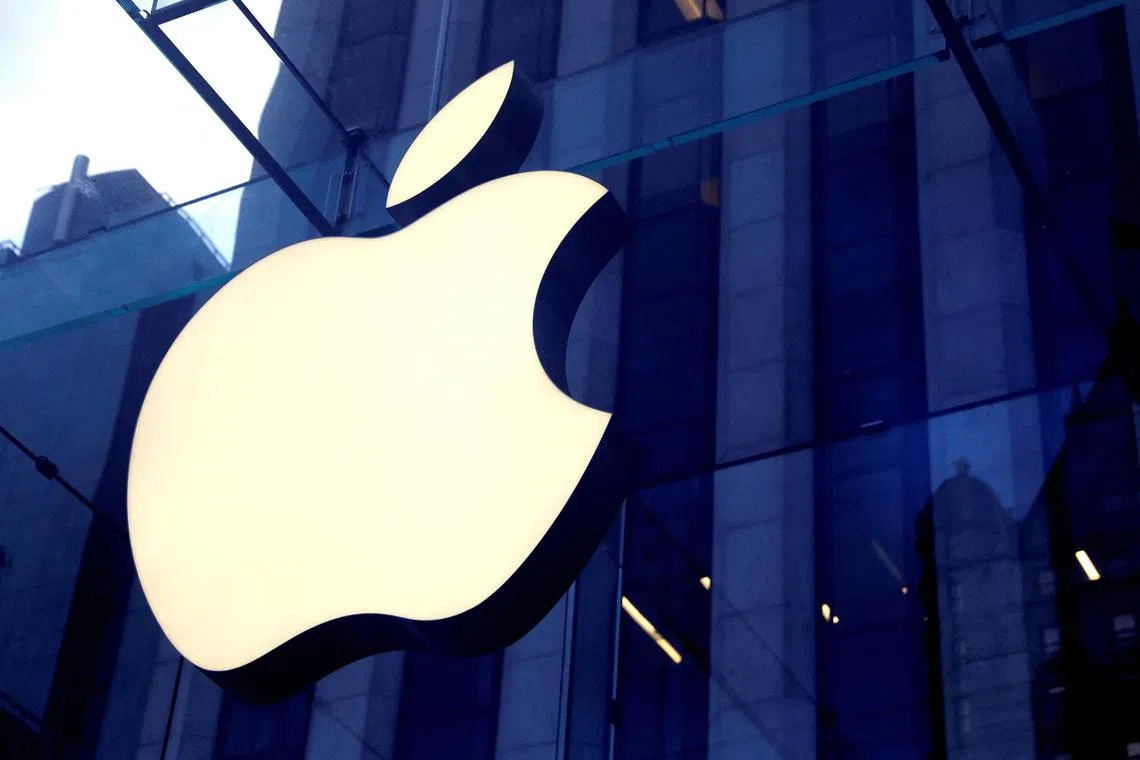Apple pulls plug on electric car project after decade-long effort
Sign up now: Get ST's newsletters delivered to your inbox

Apple's quest to build an electric car was one of the most ambitious projects in the history of the company.
PHOTO: REUTERS
Los Angeles – Apple is cancelling a decade-long effort to build an electric car, according to people with knowledge of the matter, abandoning one of the most ambitious projects in the history of the company.
It made the disclosure internally on Feb 27, surprising the nearly 2,000 employees working on the project, said the people. The decision was shared by chief operating officer Jeff Williams and Mr Kevin Lynch, a vice-president in charge of the effort.
The two told staff that the project will begin winding down and that many employees in the car team – known as the Special Projects Group, or SPG – will be shifted to the artificial intelligence (AI) division under executive John Giannandrea. They will focus on generative AI projects, an increasingly key priority for the company.
The car team also has several hundred hardware engineers and vehicle designers. It is possible they will be able to apply for jobs in other Apple teams. There will be layoffs but the number is unclear.
The move came as a relief to investors, who sent Apple shares climbing on Feb 27 after Bloomberg reported the news. The stock was up about 1 per cent at US$182.63 by the close in New York.
Mr Elon Musk, head of Tesla, also celebrated the move. He shared a post on the X social media site with a saluting emoji and a cigarette.
The decision to ultimately wind down the project is a bombshell for the company, ending a multi-billion-dollar effort called Project Titan that would have vaulted Apple into a whole new industry.
The tech giant started working on a car around 2014, setting its sights on a fully autonomous electric vehicle (EV) with a limousine-like interior and voice-guided navigation. But the project struggled nearly from the start, with Apple changing the team’s leadership and strategy several times.
Beyond the look of the vehicle, cracking self-driving technology was a major challenge. Apple had road-tested its system since 2017 using a Lexus sport utility vehicle exterior, putting dozens of vehicles on roads in the US. It also tested more secretive components on a gigantic track in Phoenix, Arizona, that was once owned by Chrysler.
In the end, Apple was facing a cooling market for EVs. Sales growth lost steam in recent months after high prices and a lack of charging infrastructure discouraged mainstream buyers from shifting to all-electric vehicles.
General Motors and Ford are pivoting to producing more hybrid vehicles after confronting lacklustre EV demand and manufacturing bottlenecks. Automakers across the industry are slashing battery-electric car prices, production targets and profit forecasts.
Even Tesla, the pioneer of the EV revolution in the US, has warned its rate of expansion will be “notably lower” in 2024. Domestic EV sales growth will decelerate to 11 per cent this year from an estimated 47 per cent growth rate in 2023, according to a forecast by UBS.
Apple has scrapped projects before, including a plan to make a TV set that was abandoned around 2015. But few endeavours have lasted this long, involved so many employees or racked up billions of dollars in expenses.
The company continues to invest heavily in other areas. It spent US$113 billion (S$152 billion) on total research and development over the past five years, with an average annual growth rate of about 16 per cent. It recently launched the Vision Pro headset – its first new product category in almost a decade – and has built up that business.
Ultimately, focusing on AI may be a better bet, Bloomberg Intelligence analysts Anurag Rana and Andrew Girard said in a note.
“Apple’s decision to abandon electric cars and shift resources towards generative AI is a good strategic move, we believe, given the long-term profitability potential of AI revenue streams versus cars.” BLOOMBERG


